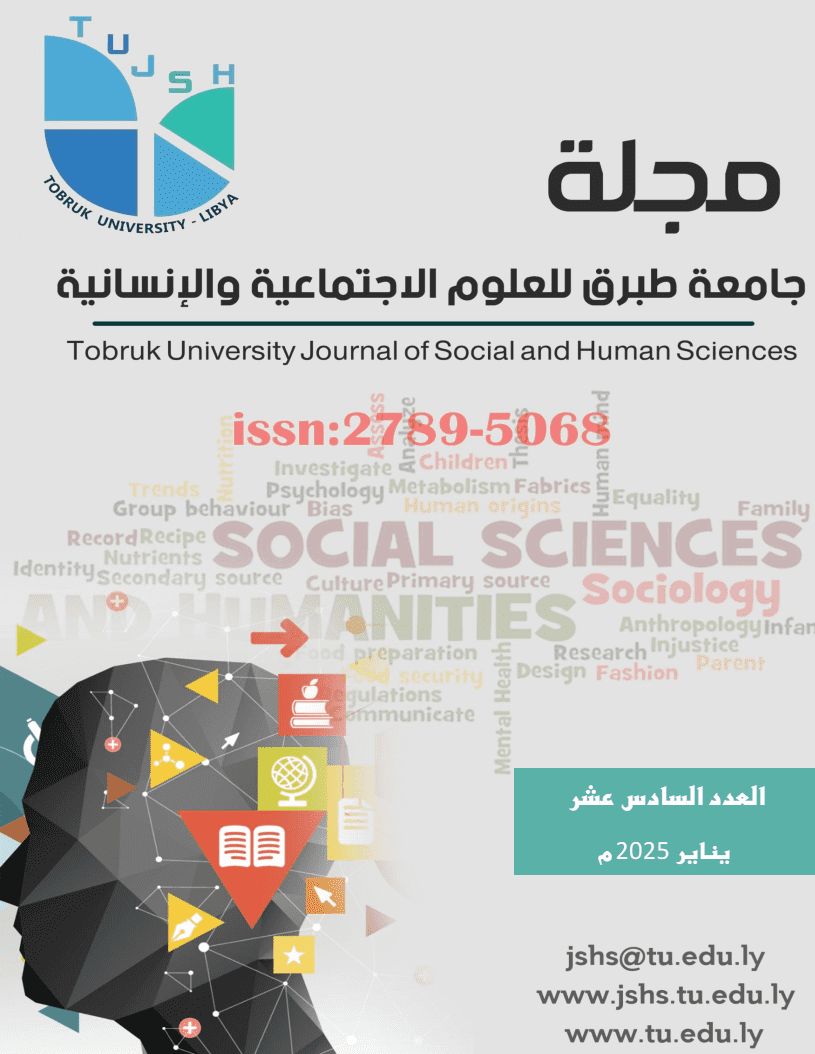Artificial Intelligence Strategies to Create an Inclusive Higher Education Environment for Students with Disabilities
DOI:
https://doi.org/10.64516/0fzrmq87Keywords:
Artificial Intelligence, Learning, People with Disabilities, Libya, Higher EducationAbstract
This study investigates the strategic use of artificial intelligence (AI) to provide an inclusive environment for students with impairments in higher education. The paper examines AI-driven inclusivity's possible advantages and disadvantages by examining AI applications including automatic accessibility tools, adaptive learning platforms, and customized support systems. The results provide a basis for institutions to use AI to improve educational fairness by highlighting both encouraging results and opportunities for development.
Downloads
References
1. Miller, D. AI-Driven Solutions for Accessible Learning in Higher Education. Journal of Educational Technology, 2022, 12(3), 45-59.
2. Leonard, F., & Lee, J. Building Inclusive Classrooms: How AI Supports Students with Disabilities. International Journal of Disability and Education, 2020, 16(2), 83-97.
3. Amani Abdelkader Shaaban. Artificial Intelligence and Its Applications in Higher Education. Journal of Education, Sohag University 2021, 4(2), 56-78
4. Edwards, P. The Ethics of AI and Its Impact on Accessibility in Higher Education. Journal of Technology and Inclusion, 2020, 8(1), 101-113.
5. Smith, G., & Green, N.. The Role of AI in Supporting Students with Disabilities: Challenges and Opportunities, 2019, 15(4), 134-148.
6. Jaber, D & Aziz, A. AI for Inclusive Education: Addressing Accessibility Challenges for Students with Disabilities in Higher Learning, International Journal of Educational Technology, 2020, 11(1), 1-10.
7. Ben Hkouma M. et.al., Developing Standards to Ensure the Quality of Educational Programs and Services for Individuals with Autism Spectrum Disorder in Libya, Mosul Nursing Journal, Volume: 11, Issue: 2, July, 2023. DOI: https://doi.org/10.33899/mjn.2023.180606
8. Makari, Nihad Muneer Jad and Agwa, Mohamed Said Said, The Reality of Employing AI Applications and Its Challenges in the Rehabilitation of Children with Special Needs (Autism Spectrum Disorder – Intellectual Disability), Journal of Scientific Research in Education, Ain Shams University, 2023, 6(2): 113-127.
9. George, Luger, Artificial Intelligence: Challenges and Opportunities, 7th edition, Pearson Education, London, 2020..
10. Baker, R. S., & Inventado, P. S. Educational Data Mining and Learning Analytics. Journal of Educational Data Mining, 2017, 6(1), 1-10.
11. Ken, P., & Chan, T.. Artificial Intelligence in Higher Education: Enhancing Accessibility for Students with Disabilities. Computers in Human Behavior, 207(115): 242-257.
12. Al-Abdali, Majed (2020). Artificial Intelligence: Concepts and Applications. Arab Scientific Publishers, Amman, Jordan
13. Seeman, J. W. Solutions for Accessible and Inclusive Education. International Journal of Inclusive Education, 2019, 23(7), 686-701
Downloads
Published
Versions
- 2025-07-12 (2)
- 2025-01-02 (1)
Issue
Section
License
Copyright (c) 2025 د. مصطفى أحمد بن حكومة، عبد القادر حسين الشريف، Hanan Sobhi Obaid، Raja Hamad Hadath Al-Abdeli (Autor/in)

This work is licensed under a Creative Commons Attribution 4.0 International License.








